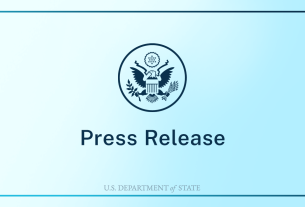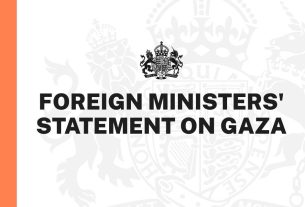In a recent discussion with U.S. President Donald Trump, Saudi Arabian Crown Prince Mohammed bin Salman (MBS) announced that the Kingdom intends to invest $600 billion in expanding trade and investment ties with the United States over the next four years. This ambitious commitment highlights the strengthening economic partnership between the two nations, building on shared strategic interests and economic diversification efforts.
The pledge was communicated through Saudi Arabia’s official news agency, which emphasized that the funds will be directed toward a wide array of sectors, including energy, infrastructure, technology, and defense. This investment initiative aligns with the Crown Prince’s Vision 2030 plan, which seeks to reduce the Kingdom’s dependency on oil exports and foster growth in non-oil sectors.
This proposed investment is part of broader efforts to deepen economic relations between the two countries. For the U.S., the infusion of capital is expected to create thousands of jobs and potentially provide significant opportunities for American businesses in a range of industries, particularly in defense and technology sectors.
The Saudi Crown Prince’s announcement comes at a time when global markets are grappling with shifting economic dynamics, and U.S.-Saudi relations are navigating complex geopolitical issues. The $600 billion investment promise could also be viewed as a move to solidify ties with the U.S. amidst regional security challenges and a rapidly evolving global economy.
Context and Implications for U.S.-Saudi Relations
This investment agreement is seen as a major step in U.S.-Saudi economic relations. In addition to the obvious financial and trade benefits, it signals the deepening strategic alliance between the nations, particularly in defense cooperation. U.S. defense companies have long been key partners with Saudi Arabia, and this new initiative could further enhance bilateral defense contracts.
Furthermore, this commitment to invest in diverse sectors could lead to greater economic integration, with U.S. companies participating in Saudi infrastructure projects, renewable energy initiatives, and technology ventures. As the Kingdom seeks to modernize its economy, the partnership offers significant long-term prospects for both parties.
The financial commitment also reflects MBS’s ambition to modernize Saudi Arabia’s economic structure while leveraging its wealth to forge stronger global partnerships. The Kingdom’s willingness to invest heavily in the U.S. economy underscores the importance it places on its relationship with the Trump administration, as well as its broader aspirations for a more diversified economic future.
While specific details about how the investment will be distributed across different sectors are yet to be fully outlined, the general outlook suggests a strategic, long-term collaboration that benefits both nations.
Conclusion
Crown Prince Mohammed bin Salman’s pledge to invest $600 billion in U.S. trade and business over the next four years represents a major step in enhancing bilateral relations and driving economic growth. This commitment underscores the Kingdom’s Vision 2030 goal of reducing oil dependency and embracing technological innovation, while offering American businesses significant opportunities in key sectors. The investment could play a crucial role in shaping future economic and geopolitical dynamics between the United States and Saudi Arabia.
Picture by Advantus Media Inc on QuoteInspector.com CCA SA 4.0



